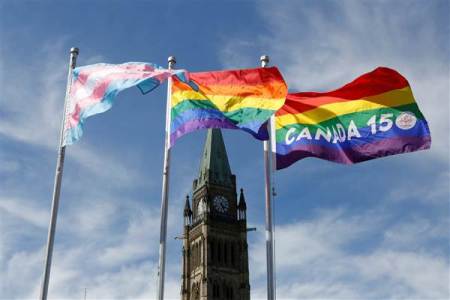Canadian church threatened with losing charity status for revoking woman's membership over same-sex relationship

Activists in Canada are petitioning the government to remove a church's tax-exempt status because it removed a woman from its membership roll after learning that she's in a same-sex relationship.
Kimberley Mills lost her membership at Calvary Baptist Church in Oshawa, Ontario, after it was discovered that she was in a relationship that was, according to a letter quoted by local media, in “disobedience to the Scriptures.”
After hearing about the church's actions toward Mills, Mac Moreau, a political activist in Oshawa, launched a letter-writing campaign to the Canada Revenue Agency earlier this month demanding that the government entity review Calvary Baptist’s status as a charity.
“Charities that allow their resources to be used for activities that promote hate and intolerance shouldn’t receive benefits from the Canadian government — benefits that all Canadians contribute to,” stated Moreau on Facebook.
Calvary Baptist Church sent The Christian Post a statement on Monday explaining that while they “love and care for everyone” church membership is based on “a voluntary association of like-minded individuals who share a commitment to the teachings of the Bible.”
“Those who choose to become members of Calvary Baptist Church share our theological and doctrinal beliefs and agree to live in accordance with those beliefs,” church leadership said.
“When an individual ceases to hold those beliefs or live in accordance with them, as has recently happened, that individual may be removed from membership but always remains welcome to attend our services and other programs.”
Some viewed the news of Calvary Baptist’s membership decision regarding Mills and the possibility of the church losing its charitable status over the decision as further evidence of Canada’s growing hostility toward churches that oppose homosexuality.
“Justin Trudeau’s Liberal government has already placed an ideological litmus test (which includes LGBT issues as well as abortion) as a prerequisite for gaining access to the Canada Summer Jobs Program, and soon enough LGBT activists will turn their attention to those churches (and other religious institutions) that still hold to the traditional biblical teaching on sexuality,” a LifeSiteNews blog argued last week.
“LGBT activists will soon demand that governments strip charitable status from any church or institution that disagrees with their ideology of sexuality, and will accuse any politician who declines to do so of being a homophobe or a transphobe.”
Dany Morin, spokesperson for the CRA, emailed CP on Monday explaining that due to confidentiality provisions in the Income Tax Act, the agency cannot comment on whether a particular charity is or is not being audited.
“The CRA’s actions can only be made public when an audit results in a charity being revoked, annulled, suspended, or penalized,” Morin explained. “The CRA posts such cases in its list of charities. This provides transparency to Canadians regarding the decisions of the CRA with respect to charities.”
Morin also explained to CP that if “a charity restricts access to its premises or its programs in any way, the nature of the restriction must be clearly linked to the benefits provided by the charity.”
“For example, a charity operating a woman’s shelter would be justified in restricting access to its programs and facilities to women; while a charity operating a community center would generally be required to make its facilities open to the public at large,” noted Morin.
“If the CRA identifies noncompliance as a result of an audit, it uses an education-first approach where possible. This means the CRA will generally give a charity the chance to correct its noncompliance through education or a compliance agreement before it resorts to other measures such as sanctions or revocation. It’s important to note that the facts of the charity’s case will determine which compliance approach the CRA will take.”





















